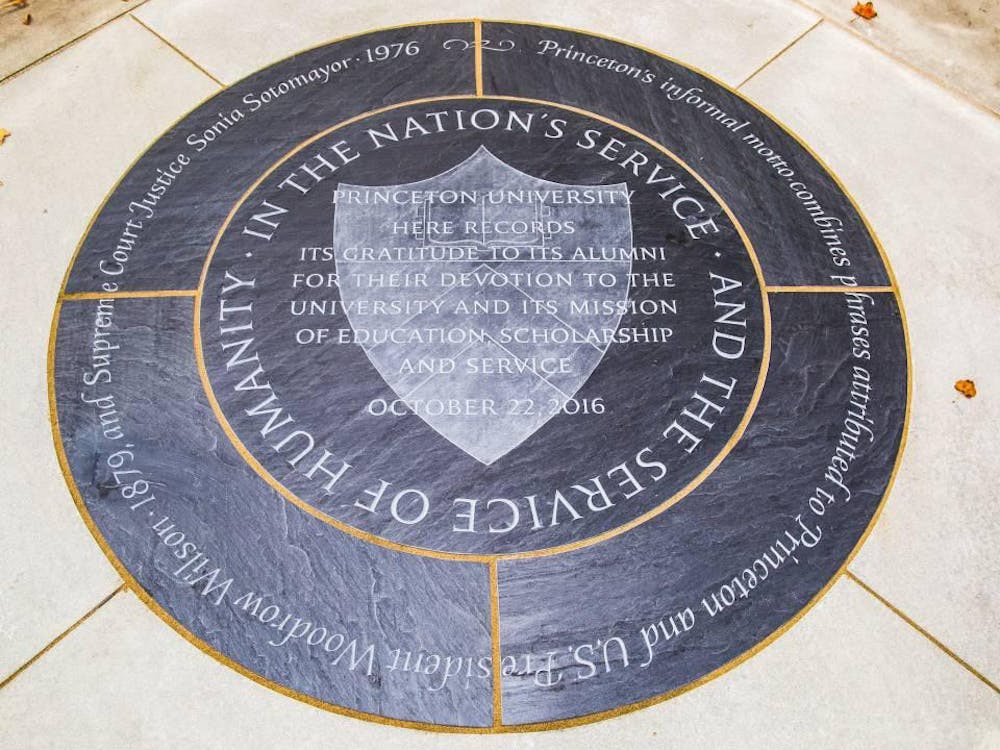Now I ask if the T-shirt was right. Should Wilson School selectivity be abolished?
I feel the arguments for why it should be abolished are stronger than the quite flimsy rationale for selectivity. That said, during this economic downturn, selectivity should be maintained: It is difficult to recruit and pay faculty and practitioners to lead the policy task forces for juniors. Only in the future, when more resources are available, will the Wilson School be ready to be non-selective like every other major.
Stanley Katz, Wilson School professor and former undergraduate program chair, gave probably the most compelling reason to make the major non-selective. In a March 9 interview with The Daily Princetonian, he said, “Students compete with each other enough.” The selection committee undoubtedly makes poor decisions that keep out students who truly want to do public policy. Furthermore, competition for spots in the department can lead to distorted academic and extracurricular choices among students who want to be appealing candidates.
Policymaking in the real world also depends much on having people from different backgrounds and viewpoints, but after analyzing the composition of my 2009 Wilson School class, I have an indication that we are quite homogenous. Ethnically, we have somewhat fewer black (7 percent) and Hispanic (3 percent) students than the Class of 2009 as a whole (10 percent and 7 percent, respectively). Socioeconomically, using data from the Princeton Facebook and city-data.com, only about 15 hail from ZIP codes with median incomes in 2004 of $50,000 per year or less, the same number as in sociology, a major with half as many students. But only a third of these possibly “disadvantaged” students in the department went to a normal public high school, and about half are in bicker clubs.
In comparison, I find the various arguments for selectivity weak. The apparent original reason for selectivity in 1930 is completely anachronistic. According to Jerome Karabel in his book “The Chosen,” Princeton faced declining SAT scores and a very high admission rate of 79 percent in 1930. If the school was going to turn out quality leaders, it had to pick from the University’s mediocre student body.
Contemporary arguments have more validity, at least to some extent. In an interview, former Wilson School dean Anne-Marie Slaughter ’80 told me that because students in the department have more academic freedom than students in other majors — there’s only one strictly required class — only very focused, self-motivated students should be in the program. But while it’s true that the classes for a student in the school are spread throughout various departments, a junior paper in a task force can require less self-motivation because the potential topics are confined to a very narrow set of questions. Additionally, the task force with selectivity could in theory lead to a battle of minds as the “best and the brightest” argue and refine policy, but I did not feel that this situation happened much in my task forces on domestic issues. While students in task forces with an international focus seem more likely to forcefully engage with each other, it is unclear how much this would diminish in a non-selective program.
Finally, it is possible some employers overvalue the selectivity of the Wilson School, giving students in the department more opportunities than they otherwise would have. This benefit may outweigh the negatives to students who didn’t get in.
But all these “benefits” seem very questionable to me, and I believe the theoretical arguments to abolish selectivity are stronger than those to keep it. The practical issues of making the program non-selective during a recession prevent me from supporting it now, though. In all likelihood, the program would grow in at least its first couple of years as students attracted to the Wilson School because of its selectivity bet that employers will be unaware that the school is now non-selective. Katz said the school is already having difficulty finding enough professors to teach task forces, and it will not have money to hire as many outside visitors and practitioners. Wilson School enrollment would likely fall in later years — alleviating the problems that increased enrollment would cause after selectivity is eliminated — but if it becomes non-selective now, there is a significant risk the program would expand just as the number of competent task force leaders is shrinking.
Still, the Wilson School can study the apparent problems of competition and homogeneity while keeping the program selective. It would help to have surveys of current and former accepted and rejected students and background data on other class years. It is also possible that students from disadvantaged backgrounds who may have low grades in their first three semesters suffer in the Wilson School admissions process but would thrive in their last five semesters in the program. But actually abolishing selectivity is a question for another day.
James Coan is a Wilson School major from Kensington, Md. He can be reached at jcoan@princeton.edu.








